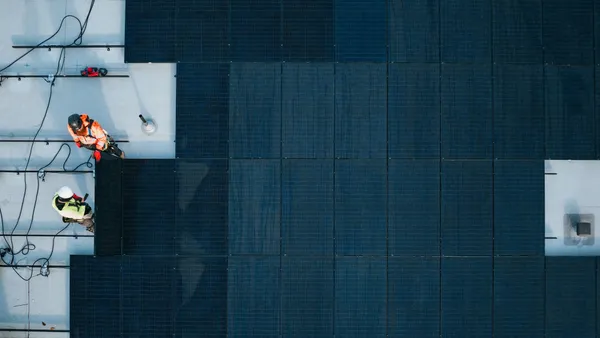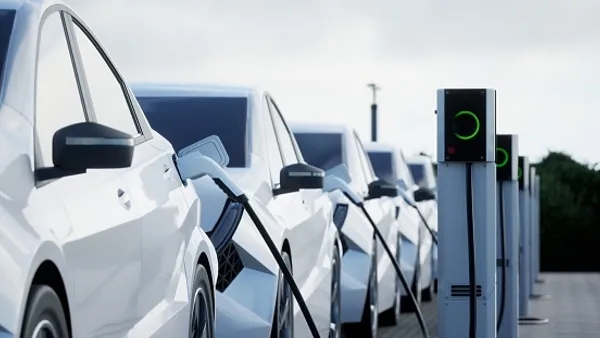Dive Brief:
-
ENGIE North America and clean energy trade groups are supporting an ISO New England proposal to require distributed energy resources to pass through state interconnection review instead of the grid operator’s process.
-
The proposal would address an “acute barrier” to market participation that has hurt DER developers in New England, stymied progress toward state policy goals for distributed resource development, and created unnecessary burdens for ISO-NE, Advanced Energy Economy said in comments filed Wednesday at the Federal Energy Regulatory Commission.
-
Separately, ISO-NE on Wednesday urged FERC to respond to a complaint over how the grid operator accounts for the capacity value of generating resources, saying the commission’s guidance is needed because ISO-NE has just started a stakeholder process to review the issue.
Dive Insight:
Like other grid operators, ISO-NE has seen strong growth in DERs, partly driven by state policy. There was nearly 4,770 MW of solar from facilities less than 5 MW in the six New England states at the end of 2021, according to ISO-NE’s distributed generation forecast working group. The working group expects that capacity to grow to 11,520 MW in 10 years, according to a May presentation by the grid operator.
Currently, some DERs are required to go through ISO-NE’s interconnection review while others go through a state process. Sorting them out is a complex, inefficient process that has led to mistakes that have hurt DER developers, ISO-NE said in a late June application at FERC.
“These errors have created a prohibitive level of uncertainty in the DER development, interconnection, and wholesale market registration process, which has chilled investment in New England, is a significant barrier to development and has resulted in adverse pecuniary outcomes for ENGIE projects,” ENGIE said in comments to FERC.
ENGIE has had dozens of DER projects barred from ISO-NE’s capacity auction after it was determined they had gone through the wrong interconnection process, sometimes due to advice of the local utility, according to the company.
Under the proposal, which grew out of a stakeholder process, all new DERs will go through state interconnection processes, similar to DER aggregations.
“By applying only one interconnection process, the state interconnection process, the proposal resolves the coordination problems and inefficiencies that ISO-NE highlighted in its filing,” ENGIE said.
Without ISO-NE’s proposed revisions, “the uncertainty and delay that new interconnecting DERs have faced in New England will only worsen as penetration of DERs continues to accelerate in response to state policies and consumer demands,” AEE, a clean energy trade group, said.
Exempting DERs from ISO-NE’s interconnection procedures will not hurt the grid operator’s ability to study how the distributed resources could affect grid reliability, AEE said, noting ISO-NE’s reliability review process will remain unchanged.
The Solar Energy Industries Association also supported ISO-NE’s proposal, which the grid operator asked FERC to let take effect by Aug. 28.
Meanwhile, ISO-NE on Wednesday asked FERC to resolve a mid-March complaint by the American Clean Power Association and RENEW Northeast over the way the grid operator calculates the capacity value of generating resources.
ISO-NE launched a stakeholder process in June to overhaul its resource capacity accreditation rules in the forward capacity market, the grid operator said, noting it aims to file a proposal with FERC late next year.
FERC guidance would help that process so stakeholders and ISO staff don’t waste time developing a plan that the commission might ultimately reject, according to ISO-NE. However, as long as the complaint is pending, ISO-NE staff and FERC commissioners and staff cannot discuss the issue because of the federal agency’s ex parte communications rules, the grid operator said.
“Given the significant value of such communication with the Commission regarding this on-going market reform effort, the ISO is requesting that the Commission act expeditiously on the complaint, in order to remove this barrier,” ISO-NE said.














